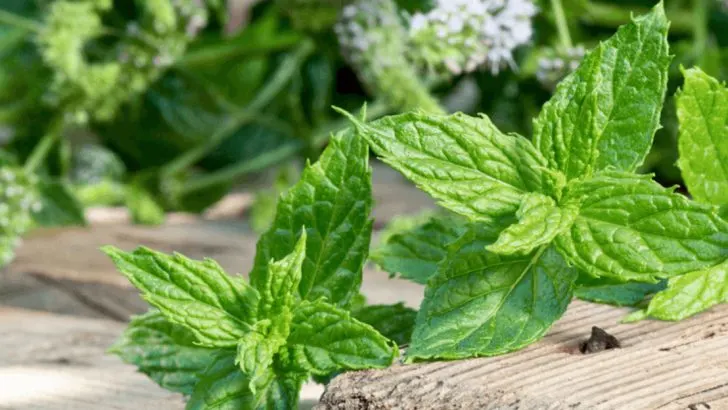Citronella is famous for its fresh scent and natural ability to repel mosquitoes, but it doesn’t have to work alone. When paired with the right plants, it becomes part of a powerful garden defense team. Whether you’re trying to enjoy evenings outdoors or protect your veggies from pesky intruders, these companion plants boost citronella’s pest-fighting power while adding beauty and biodiversity.
This list includes herbs, flowers, and shrubs that not only help deter insects but also complement citronella in terms of growth needs and garden design. From lavender and marigold to lesser-known allies like bee balm and basil, these 15 companions help create a low-maintenance, pest-resistant sanctuary—no harsh chemicals required.
Lavender
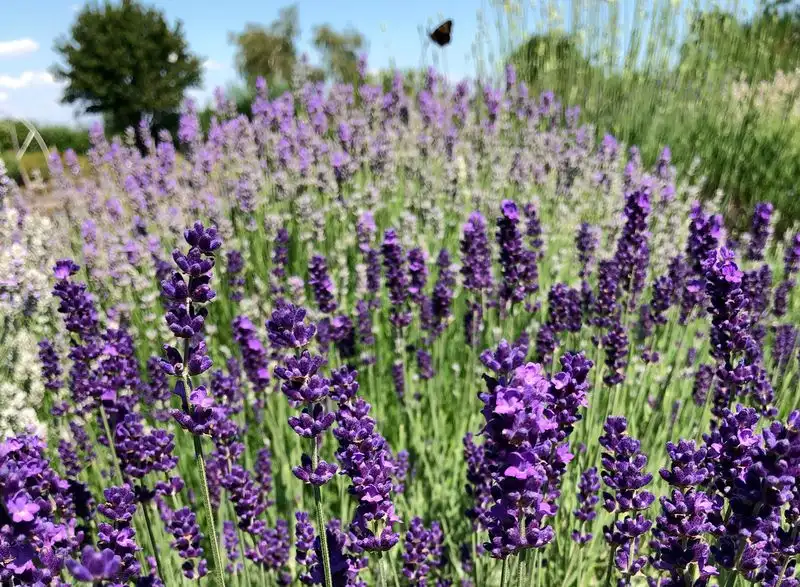
Lavender, with its soothing fragrance and lovely purple blooms, offers more than just aesthetic appeal. Its natural oils repel moths, fleas, flies, and mosquitoes, making it an ideal partner for citronella. Planting lavender near garden paths or seating areas provides a fragrant barrier against pests. This Mediterranean plant thrives in sunny spots with well-drained soil, ensuring that it flourishes alongside citronella. With its hardy nature, lavender is low-maintenance and drought-tolerant, adding resilience to your gardening ensemble. Perfect for creating a tranquil, pest-free retreat.
Basil
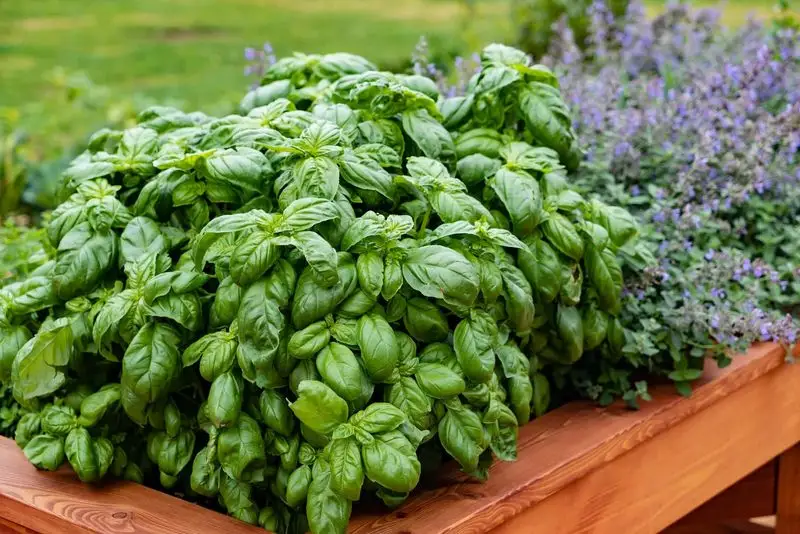
Basil is not only a culinary favorite but also a pest deterrent, especially for mosquitoes and flies. Its vibrant green leaves release oils that pests dislike, creating a shield around your citronella plants. Plant basil in well-drained soil with plenty of sunlight to enhance its growth and protective abilities. This aromatic herb adds a touch of elegance and practicality to your garden, making it a must-have for those who enjoy both cooking and outdoor relaxation. The combination of basil and citronella ensures a flavorful and pest-free haven.
Marigold
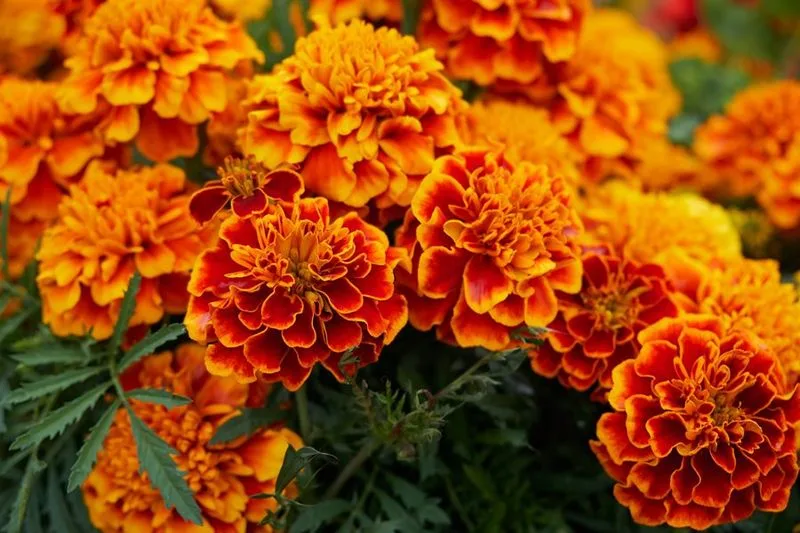
Marigolds are renowned for their vibrant blooms and pest-repelling properties, particularly against nematodes and whiteflies. Their pungent scent acts as a natural deterrent, complementing citronella’s mosquito-repelling capabilities. Planting marigolds near vegetable gardens can protect crops while enhancing their vitality. These hardy annuals thrive in sunny locations with rich, well-drained soil, offering season-long color and protection. Marigolds not only beautify the garden but also serve as guardians against unwanted insects, making them an excellent citronella companion.
Rosemary
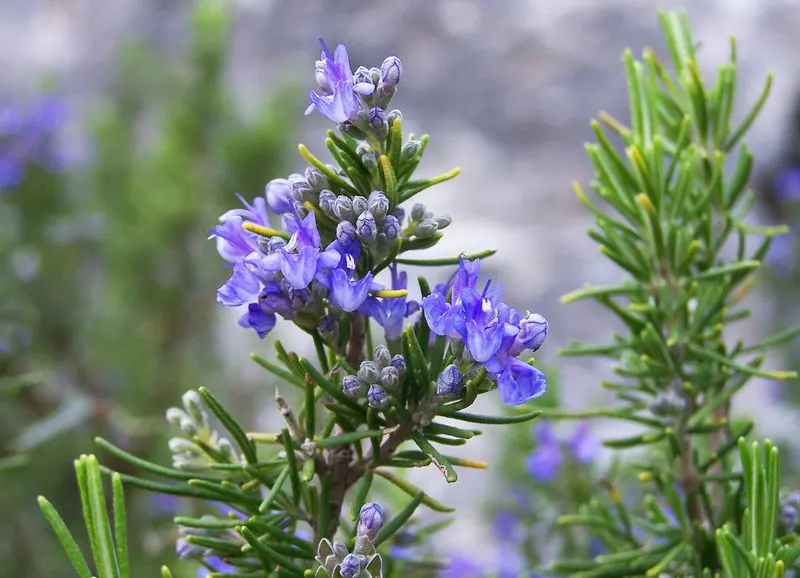
Rosemary is a stalwart of aromatic herbs, known for its culinary uses and pest-repelling strengths. Its woody aroma deters mosquitoes and other insects, providing a complementary effect to citronella. Planted in well-draining soil and full sun, rosemary grows robustly, adding structure and scent to your garden. This evergreen herb offers year-round beauty and utility, making it an invaluable addition. Whether used in cooking or as a natural deterrent, rosemary enhances the garden’s functionality and charm, harmonizing perfectly with citronella.
Mint
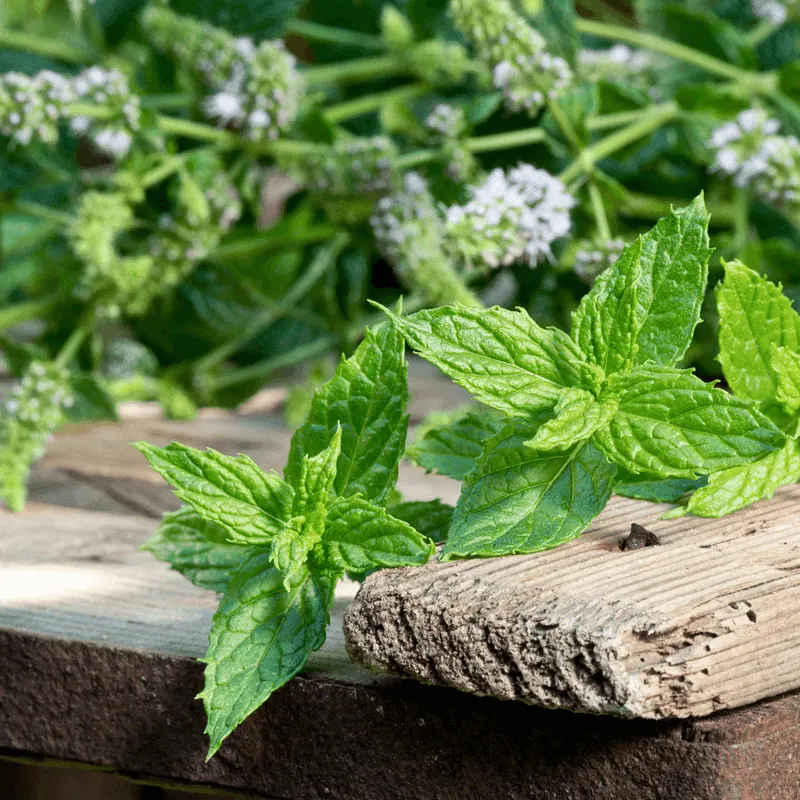
Mint is not only invigorating in teas and dishes but also adept at keeping pests at bay. Its strong fragrance wards off ants, mosquitoes, and other unwanted visitors, supporting citronella’s pest control efforts. Best planted in containers to prevent overgrowth, mint thrives in moist, rich soil with partial shade. Its lush green leaves and refreshing scent add vitality and practicality to your garden space. With mint and citronella together, you can enjoy a garden that smells delightful and stays blissfully pest-free.
Catnip
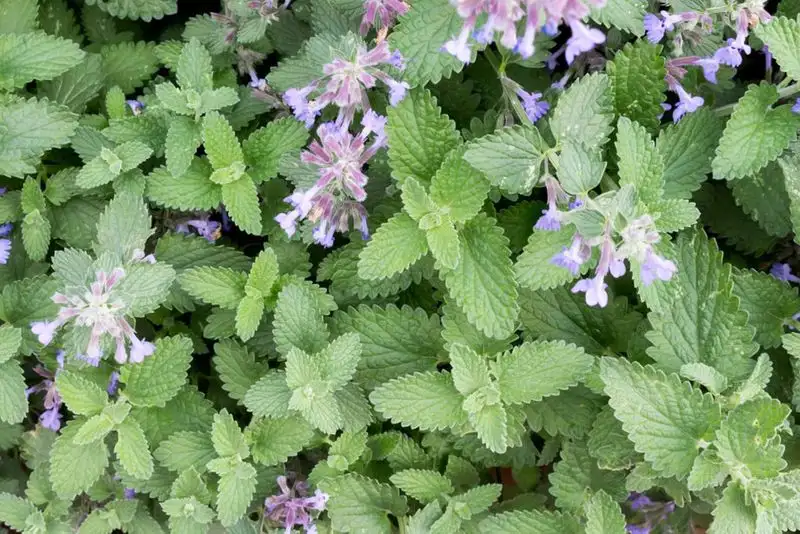
Catnip is a magnet for cats but a bane for mosquitoes and other pests. Its natural oils repel insects effectively, making it a valuable ally for citronella. Plant catnip in well-drained soil and full sun to partial shade, ensuring a healthy growth that supports pest control. This herb is not only functional but also adds a touch of whimsy to your garden, especially if you have feline visitors. With its dual appeal to cats and repellent effect on pests, catnip is a charming and practical companion for citronella.
Petunias
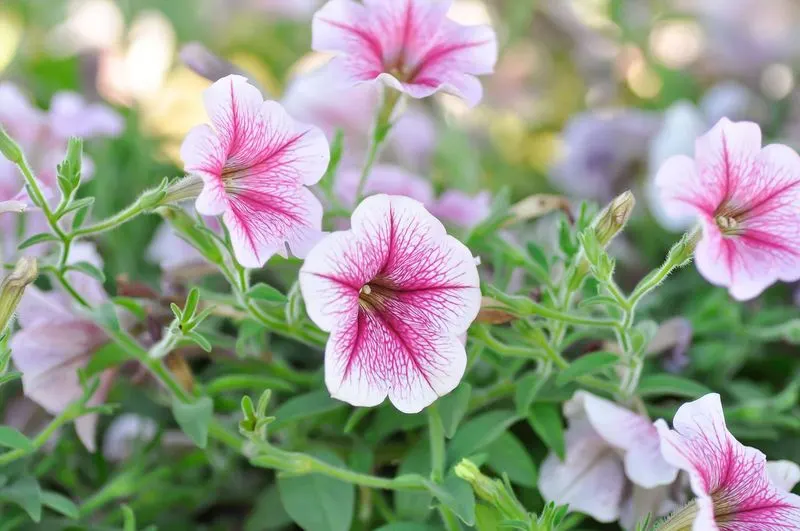
Petunias are a garden staple, known for their vibrant colors and natural pest-fighting abilities. They repel aphids, tomato worms, and other insects, creating a safe haven for your citronella plants. These flowers thrive in sunny spots with well-drained soil, offering a burst of color and protection. Petunias’ cascading blooms add visual interest and practicality, ensuring your garden remains both beautiful and pest-free. As a companion to citronella, petunias are easy to care for and highly effective, making them a gardener’s delight.
Thyme
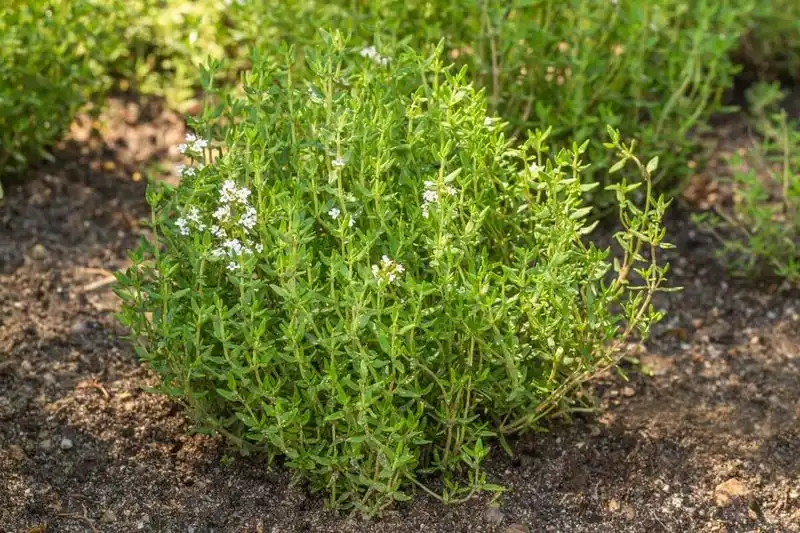
Thyme is a versatile herb that brings flavor to cuisines and deters garden pests like cabbage worms and whiteflies. Its aromatic nature complements citronella, providing a multi-layered defense against unwanted insects. Plant thyme in well-drained soil and full sun for optimal growth and pest-repelling action. This hardy perennial requires minimal care and offers year-round greenery, enhancing both aesthetics and functionality. With thyme and citronella, your garden enjoys robust protection and a touch of culinary delight, appealing to gardeners and chefs alike.
Garlic
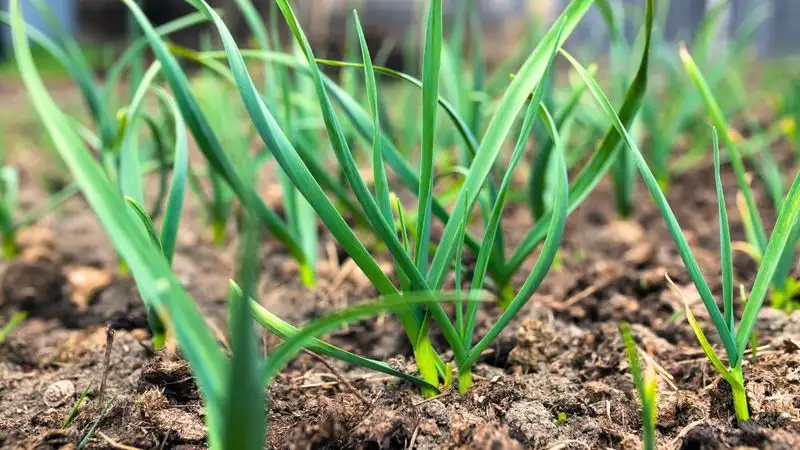
Garlic is a powerhouse plant, renowned for its culinary uses and natural pest-repelling properties. Its strong odor deters aphids, beetles, and other garden nuisances, complementing citronella’s mosquito-repelling capabilities. Plant garlic in rich, well-drained soil, ensuring that it has enough sunlight to thrive. The combination of garlic and citronella creates a formidable barrier against pests, while also offering a bounty of flavor for your kitchen. With garlic in your garden, you gain both culinary benefits and a natural shield for your plants.
Chrysanthemums
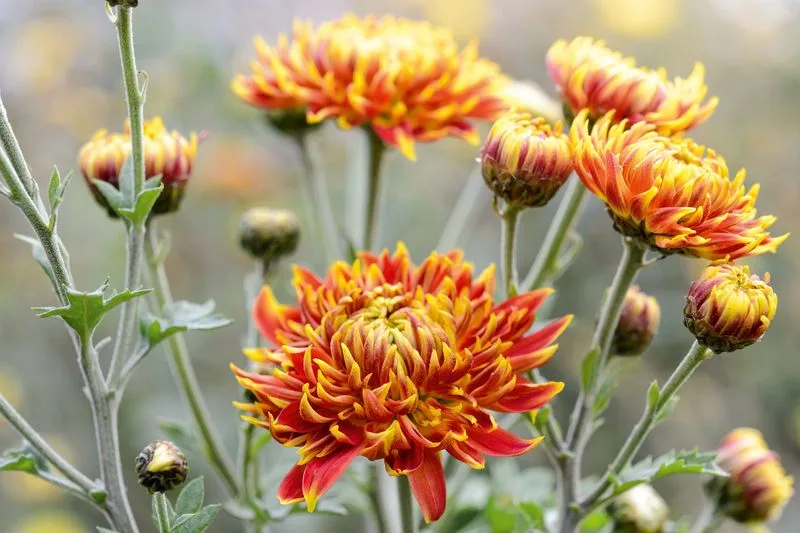
Chrysanthemums are celebrated for their beauty and pest-repelling power, thanks to pyrethrum, a natural insecticide. They repel ants, ticks, and other insects, making them ideal citronella companions. Plant chrysanthemums in sunny locations with well-drained soil for best results. Their vivid blooms add color and vitality to the garden, creating a lively and inviting space. The synergy between chrysanthemums and citronella ensures an attractive yet pest-free garden, blending aesthetics with practical pest control. A true asset to any gardener’s collection.
Lemongrass
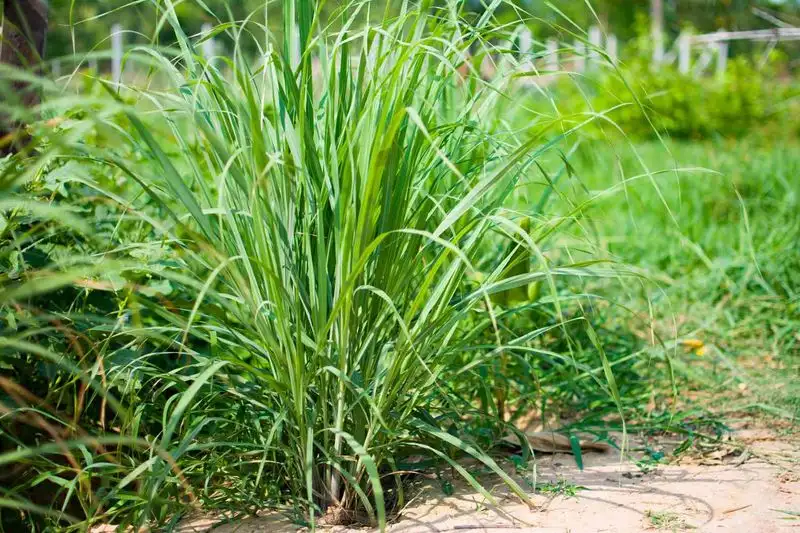
Lemongrass, often mistaken for citronella, is a potent mosquito repellent in its own right. Its citrusy aroma enhances citronella’s effects, creating a powerful pest barrier. Thriving in warm, sunny conditions with well-drained soil, lemongrass adds height and texture to your garden. This versatile plant can be used in cooking and teas, offering additional benefits beyond pest control. Together with citronella, lemongrass forms a dynamic duo, ensuring your garden remains a serene and pest-free environment, perfect for relaxation and enjoyment.
Sage
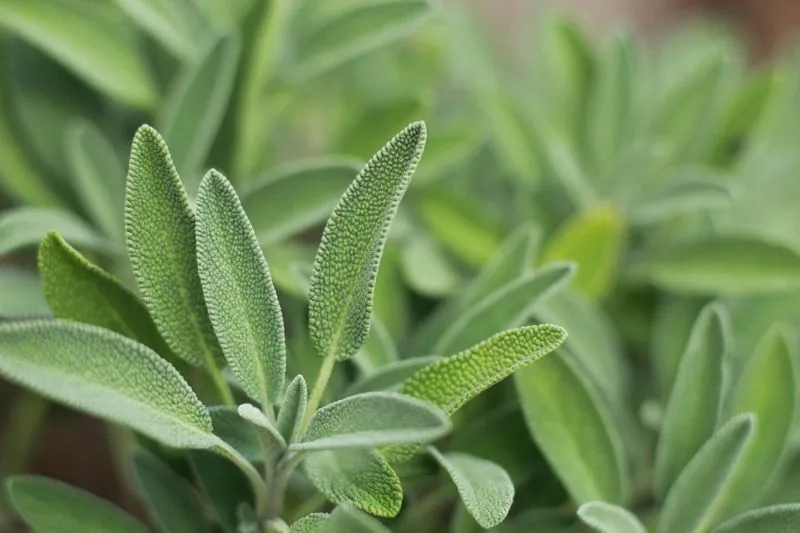
Sage is not just for culinary delights; it also excels at pest control, deterring cabbage moths and carrot flies. Its earthy aroma complements citronella, providing a layered defense against garden intruders. Plant sage in well-drained soil with ample sunlight to encourage robust growth. This perennial herb offers year-round greenery and is easy to care for, making it a staple in pest-free gardening. With sage and citronella, your garden becomes a sanctuary of flavors and protection, appealing to both the senses and practical needs.
Nasturtiums
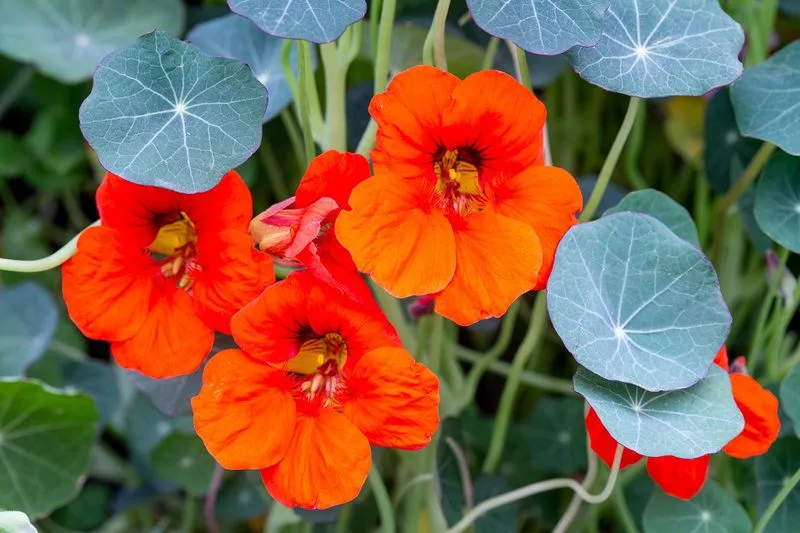
Nasturtiums are valued for their vibrant flowers and ability to repel pests like aphids and whiteflies. Their peppery scent enhances citronella’s mosquito-repelling capabilities, creating a comprehensive pest control strategy. Plant nasturtiums in well-drained soil and full sun for optimal growth and bloom. These attractive flowers not only protect your garden but also add a splash of color and texture. With nasturtiums and citronella working together, you ensure a lively and resilient garden space, rich in both beauty and functionality.
Alliums
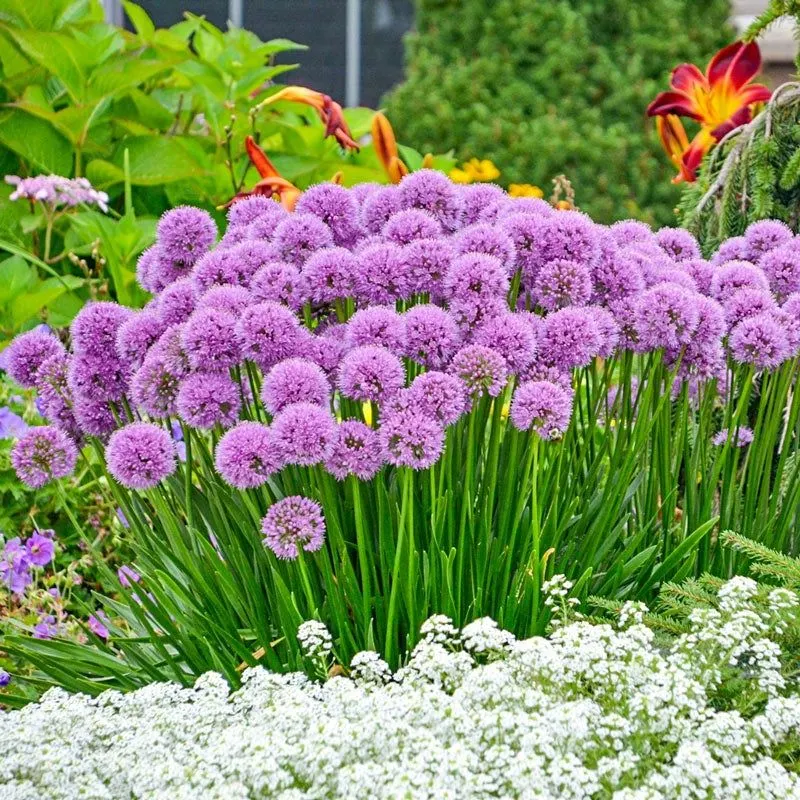
Alliums, part of the onion family, offer both aesthetic and pest-repelling benefits. Their tall, spherical blooms deter aphids, slugs, and other pests, supporting citronella’s efforts. Plant alliums in sunny locations with well-drained soil to ensure healthy growth. These striking plants add architectural interest and a natural defense system to your garden. The combination of alliums and citronella not only protects but also enhances your garden’s visual appeal, creating a harmonious and effective pest-free environment.
Geraniums
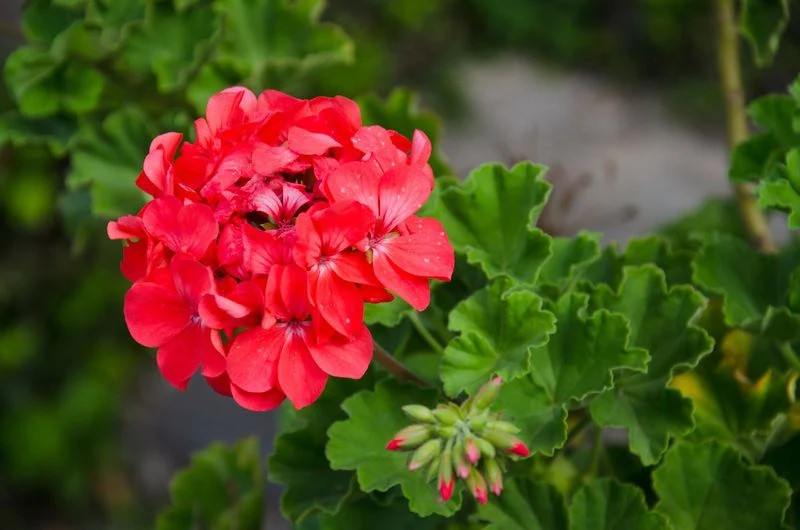
Imagine a garden where the air is filled with the delightful scent of citronella intermingling with the sweet aroma of blooming geraniums. These spectacular flowers, with their bold hues of red and pink, are not just a visual treat. They carry natural insect-repelling properties, making them a delightful ally in your pest-free garden journey.
Geraniums are not picky about their sunlight needs. They thrive happily alongside citronella, enjoying similar watering patterns. Their cheerful appearance adds a splash of color to your garden, while their subtle scent works in harmony with citronella to keep unwanted insects at bay.
A fun fact: geraniums were once prized as a natural remedy for skin issues. Today, you can enjoy their beauty and practicality as they enhance your garden’s charm and effectiveness against pests.

